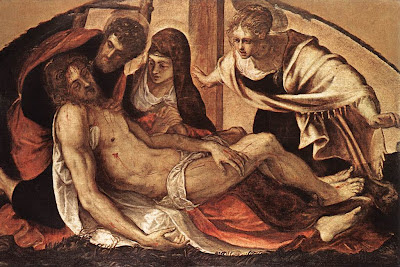“The church of Milan had only recently begun to employ this mode of consolation and exaltation with all the brethren singing together with great earnestness of voice and heart. For it was only about a year — not much more — since Justina, the mother of the boy-emperor Valentinian, had persecuted thy servant Ambrose on behalf of her heresy, in which she had been seduced by the Arians. The devoted people kept guard in the church, prepared to die with their bishop, thy servant. Among them my mother, thy handmaid, taking a leading part in those anxieties and vigils, lived there in prayer. And even though we were still not wholly melted by the heat of thy Spirit, we were nevertheless excited by the alarmed and disturbed city.
This was the time that the custom began, after the manner of the Eastern Church, that hymns and psalms should be sung, so that the people would not be worn out with the tedium of lamentation. This custom, retained from then till now, has been imitated by many, indeed, by almost all thy congregations throughout the rest of the world.” St. Augustine, Confessions
Click here for Blessed Henry Cardinal Newman’s hymn, Praise to the Holiest in the Height

